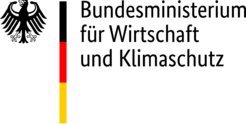Hybrid and explainable deep learning (HDL) Group
Basil Kraft moved on to ETH Zurich.
The research group is not active any longer. The page is only visible until all members of the group have left the institute.
The research group investigates approaches to use deep learning for process understanding via explainable machine learning (XAI) and hybrid modeling, the combination of physically-based modeling and machine learning. Scientific insights can either be achieved via built-in mechanisms (e.g., hybrid modeling) or via post-hoc explanations. Both approaches are motivated by the ever-growing amounts of Earth observation data, the limited capability of traditional, physically-based models to reproduce observed patterns, and the capability of modern deep learning approaches to approximate the behavior of complex Earth system processes.
Explainable machine learning
The dynamics of ecosystems and Earth system processes in general are often difficult to model and predict, and even today many machine learning approaches fail to encode temporal dependencies that typically characterize dynamic natural systems. However, deep learning approaches in the time domain (e.g. recurrent neural networks) are conceptually capable of solving such problems. Such models are difficult or impossible to interpret physically, which limits the scientific knowledge gained from them.
However, appraoches from XAI can support the process of model development and debugging, justify model behavior, and even enable the destillation of knowlege from machine learning models. We focus on temporal dependencies between forcing variables like precipitation and the ecosystem response (for example represented by vegetation state).

In a first attempt to apply deep learning to better understand ecosystem dynamics (Kraft et al., 2019), we used a permutation-based approach to identify memory effects on vegetation state. This research will be continued with more recent appraoches from explainable machine learning.
Explainability via buildt-in mechanisms: Hybrid modeling

The combination of machine learning and physically-based modeling, hybrid modeling , is intended to research and further develop possible ways of gaining scientific knowledge about the observed phenomena despite the black box character of the models used and thus the potential of temporal deep learning approaches for to be able to use the modeling of ecosystem processes.
First application of hybrid modeling to Earth system modeling

In a recent publication (Kraft et al., 2022), we presented a physics-aware machine learning model of the global hydrological cycle. As the model uses neural networks under the hood, the simulations of the water cycle are learned from data, and yet they are informed and constrained by physical knowledge. The simulated patterns lie within the range of existing hydrological models and are plausible. The hybrid modeling approach has the potential to tackle key environmental questions from a novel perspective.
A key result was the decomposition of the terrestrial water storage signal into the components of snow, soil moisture, and groundwater in a data-driven yet physically consistent way.

The DUKE project

The DUKE project (Deep-learning-based hybrid uncertainty-aware modelling of the coupled water and carbon cycle with Earth observation data) aims to further develop and combine the research paths of hybrid-modelling and uncertainty assessment. The project is a collaboration between the Max Planck Institute for Biogeochemistry adn the Chair of Remote Sensing Technology at the Technical University of Munich.
DUKE focuses on the real-world problem of modelling global matter transport cycles, specifically the currently still open question of coupled water and carbon cycles. Here, a data-driven perspective offers enormous potential, as the mostly rigid boundary conditions and parameterisations in process models lead to systematic deviations in the simulations. Furthermore, the quantification of uncertainties is essential for model development as well as for testing alternative hypotheses.

The appraoches from the uncertainty quantification (TUM) will be integrated into the coupled hybrid model developed by the MPI group to achieve an uncertainty-aware hybrid model of the coupled carbon-water cycle.





